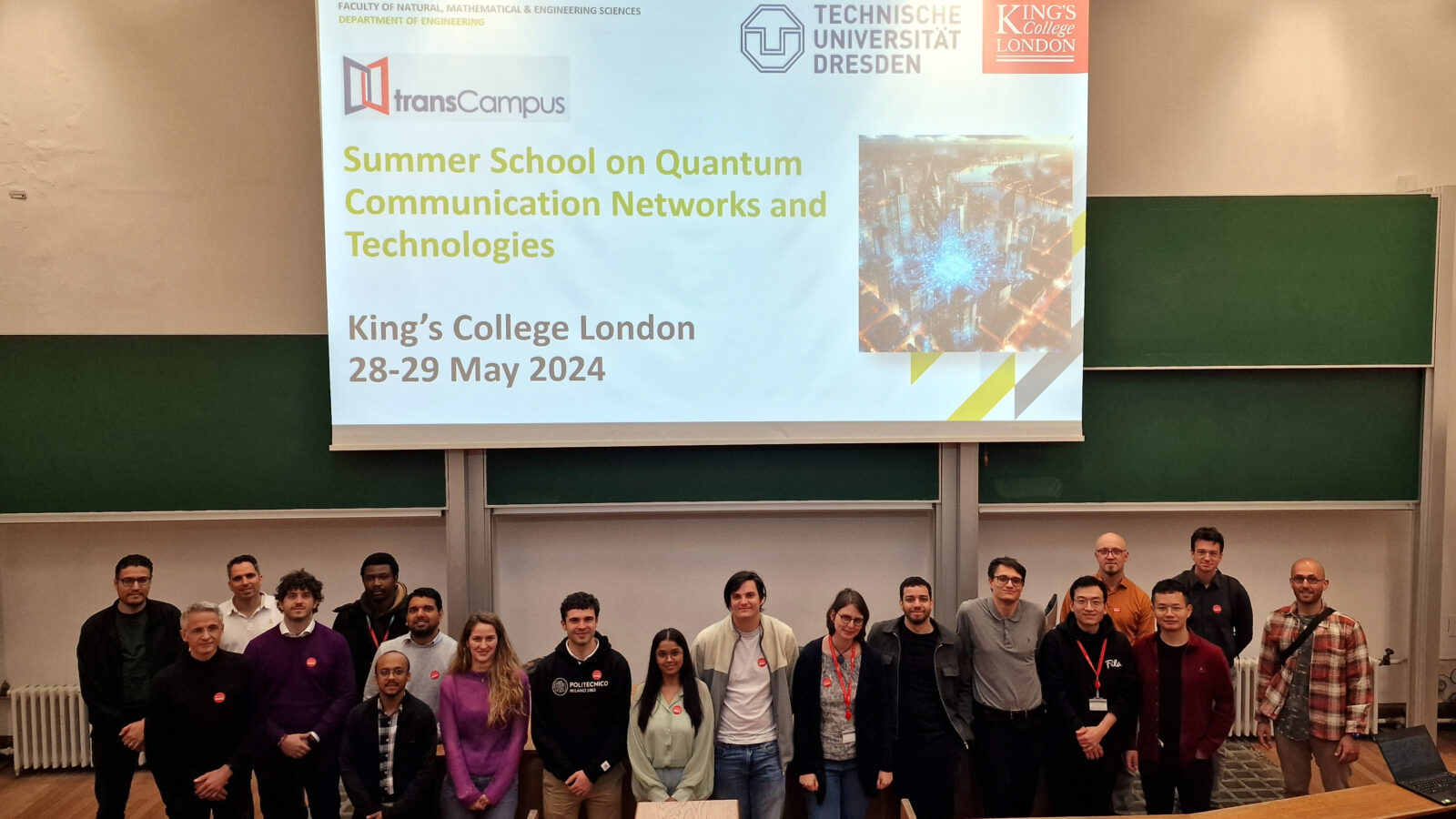The first summer school Quantum Communication Networks and Technologies took place in London on 28 and 29 May 2024. It offered an in-depth insight into one of the hottest topics in information technology. Organised by the transCampus team Riccardo Bassoli (TUD, CeTI) and Osvaldo Simeone (King’s) the Summer School hosted about 20 students of different nationalities, coming from various universities. International experts from companies and universities gave lectures and led workshops contributing to an intense programme in which participants also had the opportunity to work on small exercises, exchange knowledge and present their own poster.
The first day focused on quantum communication and network related topics. Janis Nötzel, TU München, showed design guidelines and challenges related to entanglement-assisted communications and their simulation via ‘classical’ software. Alberto Comin, Airbus, extended the concepts by showing the design of future three-dimensional quantum-classical networks, where quantum communications are seamlessly terrestrial and non-terrestrial (e.g., satellite-based). He also explained the problems of designing and realising non-terrestrial quantum communication networks. Leonardo Banchi from the University of Florence dealt with the theoretical formulation of quantum channels and quantum information theory. His presentation of the most popular quantum key distribution protocols led to the discussion of their security. Banchi focused on the disturbance caused by any quantum hacking attempt and side-channel attacks based on hardware imperfections. The students’ poster session completed the day and gave them the opportunity to discuss lively with each other.
The second day focused on quantum computing technologies. Gabriella Bettonte, CINECA, presented the design of computing infrastructures in which quantum computational paradigms interwork with traditional High Performance Computing (HPC) architectures. She addressed the critical challenges and opportunities that arise in this process. The lecture identified the use of quantum computers as accelerators into the HPC infrastructure with the objective of achieving an actual quantum computing advantage. Finally, Holger Boche, TU München, emphasized the importance of theory in overcoming the difficulties of building quantum computing of practical relevance. He explained the very recent results on Turing’s theory of computability and its application on quantum gate-based computing. This showed the students some interesting outcomes about the problems of uncomputability in digital quantum computing.
At best, the summer school participants will tackle these challenges in the future.
Further information on speakers and lectures can be found on the project website.
The event was supported by the transCampus funding programme as part of the University of Excellence funded by by the Federal Ministry of Education and Research (BMBF) and Free State of Saxony.


